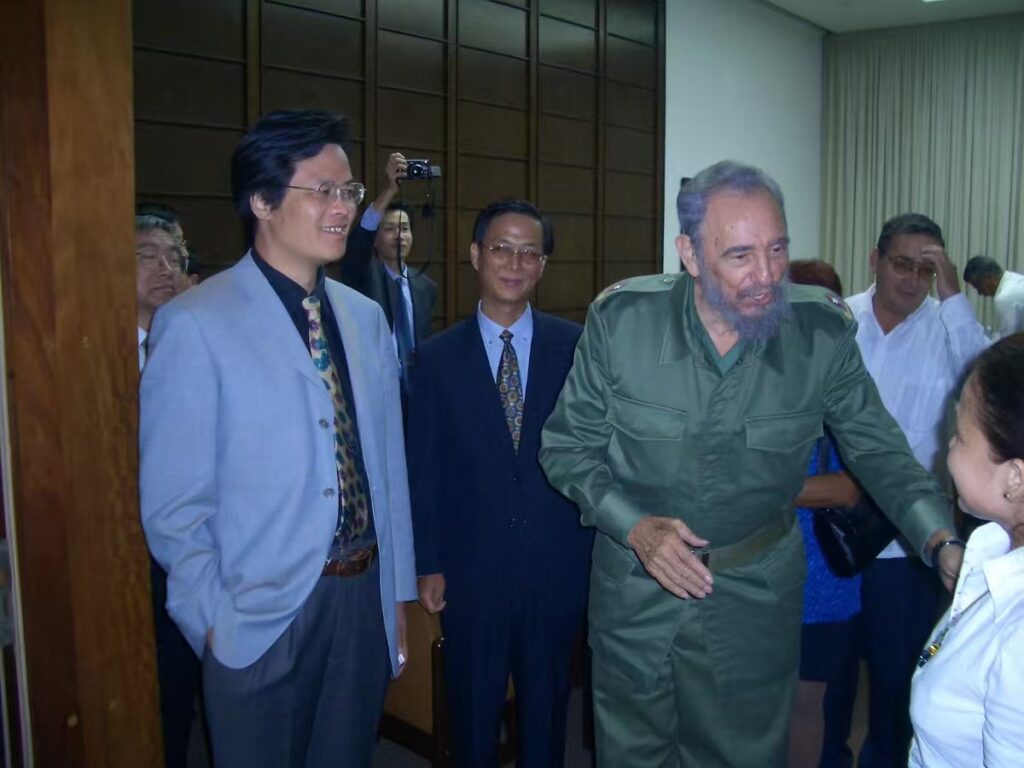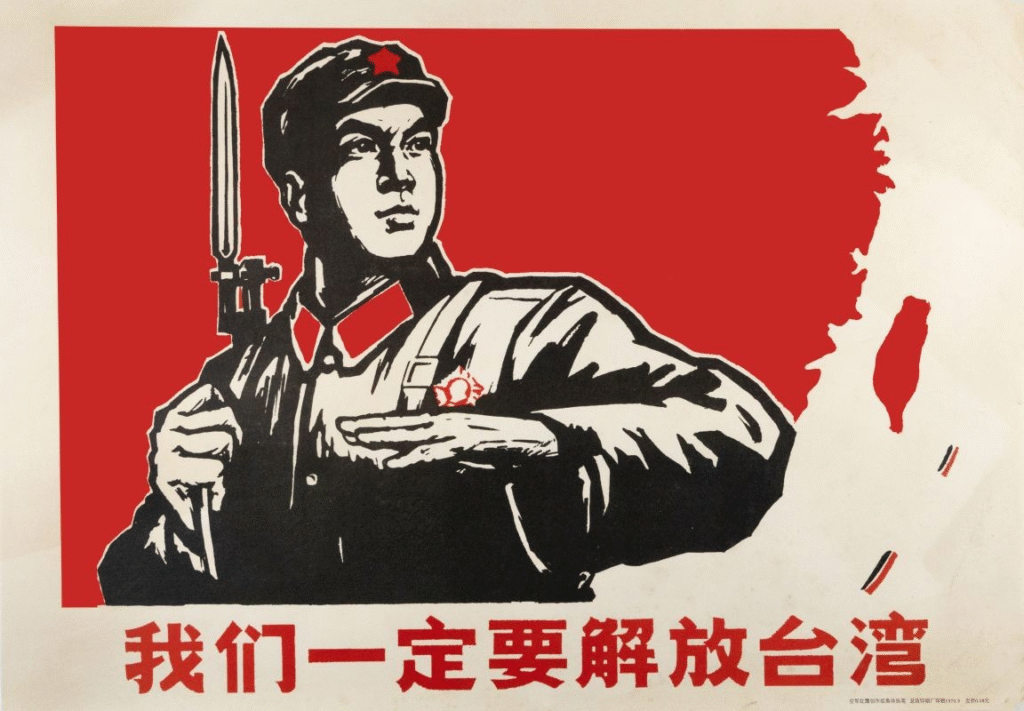Jiang Shixue,
Research Center for the Portuguese-speaking Countries, Shanghai University,
05/10/2025

A panel of Brazilian Supreme Court justices has sentenced former Brazilian President Jair Bolsonaro to 27 years and three months in prison after convicting him of attempting a coup to remain in office despite his 2022 electoral defeat. This news reminds people of the hegemonic action undertaken by President Trump against Brazil.
Indeed, the trial of Bolsonaro has drawn international attention. The reaction of former U.S. President Trump has further dragged what should have been a purely domestic matter of Brazil into the whirlpool of international geopolitics. Trump openly expressed support for Bolsonaro and even threatened to impose high tariffs on Brazil to pressure its judicial system. This move is not only a blatant disregard for Brazil’s sovereignty but also yet another naked display of the hegemonistic nature of the United States’ long-standing interference in Latin American affairs.
U.S. interference in Latin America is nothing new. Since the birth of “Monroe Doctrine” in the 19th-century, the United States has regarded Latin America as its “backyard,” frequently meddling in the region’s domestic affairs through political, economic, and even military means. From supporting military dictatorships to orchestrating coups, from economic sanctions to trade coercion, America’s actions have consistently revolved around safeguarding its own geopolitical interests and economic privileges.
For example, in the mid-20th century, the CIA repeatedly intervened in the political processes of Latin American countries such as the 1954 overthrow of Guatemala’s democratically elected President Jacobo Árbenz and support for Pinochet’s 1973 coup in Chile. These actions not only disrupted democratic progress in the region but also triggered social unrest and humanitarian crises. Trump’s interference in Brazil’s internal affairs is simply the continuation of this hegemonic tradition: Whenever a Latin American country’s political trajectory fails to align with U.S. interests, Washington has no hesitation in brandishing economic or political weapons.
Apparently, Trump’s use of tariffs as a weapon to threaten Brazil is a typical example of economic bullying. Tariffs are supposed to be tools for balancing interests in international trade, but under Trump’s leadership they became weapons to coerce other countries into submitting to U.S. will. Behind this tactic lies an abuse of U.S. economic hegemony: Through unilateral sanctions and trade barriers, America forces other countries to make political or economic concessions.
Trump’s tariff threat not only risked harming Brazil’s economy but also directly challenged its judicial independence and political sovereignty. As a sovereign nation, Brazil has the right to legally investigate the actions of its former leader as this is a fundamental principle of the rule of law. Trump’s interference is equivalent to telling the world that U.S. political preferences outweigh the laws and democratic procedures of other nations. Such arrogance is a blatant violation of international law and the basic norms of international relations.
When criticizing other countries for “interfering in internal affairs,” the United States often appears self-righteous. Yet its own conduct repeatedly exposes its double standards. For example, while invoking “democracy and human rights” to condemn other states, the U.S. often gives free rein to allies or politicians aligned with its interests. During Bolsonaro’s presidency, some of his policies drew widespread criticism from the international community. However, simply because Bolsonaro was pro-U.S., Trump ignored these controversies and went so far as to defend him and pressure Brazil’s judiciary.
These double standards further highlight the hypocrisy of U.S. hegemony. The so-called “democracy” and “rule of law” are nothing more than tools for advancing geopolitical goals, not genuine principles it upholds. When these principles conflict with U.S. interests, they are swiftly abandoned.
Encouragingly, Latin American nations are not powerless in the face of U.S. interference. In recent years, the region has repeatedly demonstrated collective resistance against U.S. hegemony, for example through regional organizations such as CELAC (Community of Latin American and Caribbean States), which strengthen cooperation and promote multilateralism to counter unilateral coercion. As one of the largest economies in Latin America, Brazil has even greater capacity to defend its sovereignty on the international stage.
Trump’s interference in Brazil’s internal affairs is not only an affront to a single country but also a challenge to the global multilateral system and the international legal order. This incident once again reminds the world that hegemony has not disappeared and it persists in new forms.
The international community must clearly recognize that the sovereignty and rule of law of any nation should never be sacrificed to hegemonism. Only by adhering to the principles of equality and mutual respect in international relations can the world move toward a fairer and more balanced future. For Latin America, unity and cooperation is a key to resisting external interference; for the world, safeguarding multilateralism and the spirit of the rule of law is the only way to curb hegemony.
In this era full of uncertainty, the international community should collectively call for the hegemonic power to stop interfering in other countries’ internal affairs, and respect every nation’s right to independently choose its development path. Only in this way can a truly rules-based, rather than power-based, international order be realized.
Jiang Shixue

Jiang Shixue is Senior Research Fellow of the Chinese Academy of Social Sciences (CASS). He is also Distinguished Professor of the Shanghai University, Macau University of Sciences and Technology, and Sichuan International Studies University, and Guest Professor of Anhui University, Zhejiang International Studies University and Chongqing University of Science and Technology. Currently, he is Vice President of the China Council of Experts for BRICS Think-tanks, Vice President of the China Society of the Emerging Economies, Vice President of the Advisory Committee of the Association of Chinese Universities for the Discipline of Area Studies, Co-Chairman of the Association for Research of the Small Island States, and Advisor to the Chinese Association of Latin American Studies, and the Chinese Association of Latin American History Studies. He was President of Latin American Studies Council of Asia and Oceania (2023-2025). He was Deputy Director-General of the Institute of Latin American Studies, CASS, from 1997 to 2008, and Deputy Director-Geneal of Institute of European Studies, CASS, from 2009- 2016. He also served as the Head of the Division for International Studies of the Professors Committee at the CASS Graduate School from 2009 to 2016. His research fields include Chinese foreign policies, international relations, world economy, global governance, Latin America and the Caribbean, Europe, BRICS, emerging economies, etc. He can be reached at: jiangsx@cass.org.cn or jiangshixue@126.com










